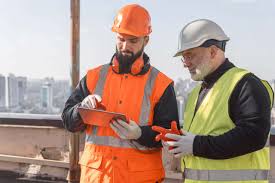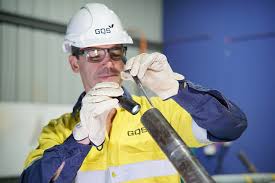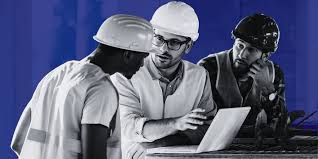Ensuring Quality with Third-Party HVAC System Inspections
Third-party inspection for HVAC systems is a crucial aspect of ensuring the quality and efficiency of heating, ventilation, and air conditioning (HVAC) systems in buildings. These inspections, conducted by independent parties not directly involved in the design or installation of the systems, play a vital role in identifying potential issues, verifying compliance with industry standards, and ensuring that the systems are functioning optimally. By entrusting third-party experts with the task of conducting thorough inspections, building owners and managers can have confidence in the performance and reliability of their HVAC systems. In this article, we will explore the importance of third-party HVAC system inspections and how they third party inspection agency contribute to maintaining high-quality indoor environments.
Third-party HVAC system inspections ensure quality by providing an unbiased assessment of the system's performance and condition. These inspections are conducted by independent professionals who are trained to identify issues and potential problems that may affect the system's efficiency and reliability. By leveraging their expertise, businesses can gain valuable insight into the overall health of their HVAC systems and address any issues before they escalate into major problems. This proactive approach helps to ensure that the system continues to operate at peak performance, ultimately leading to improved comfort, energy efficiency, and cost savings. Additionally, third-party inspections can also help businesses maintain compliance with industry regulations and standards, further contributing to the overall quality and third party inspection certificate reliability of their HVAC systems.
Third-party HVAC system inspections involve hiring an independent professional to assess the performance and condition of the system. These inspections help businesses identify issues and potential problems, third party inspection services ensuring the system's efficiency and reliability. By leveraging third-party expertise, businesses can address any issues before they become major problems, contributing to improved comfort, energy efficiency, and cost savings. Additionally, these inspections assist in maintaining compliance with industry regulations and standards, enhancing the overall quality and reliability of HVAC systems.
Understanding the Importance of Third-Party Inspection for HVAC Systems
third party inspection agency

Third-party inspection for HVAC systems is crucial for ensuring the safety, efficiency, and performance of heating, ventilation, and air conditioning equipment. These inspections are carried out by independent, certified organizations or professionals who are not affiliated with the manufacturer or installer of the HVAC system. By having a third-party inspection, it provides an unbiased evaluation of the HVAC system, helping to identify any potential issues or deficiencies in the installation, components, or overall performance. This can ultimately help to prevent safety hazards, reduce energy consumption, and prolong the lifespan of the HVAC system. In addition, third-party inspections can also provide documentation and verification of compliance with industry regulations, codes, and standards. This is particularly important for ensuring that HVAC systems meet the necessary requirements for safety and performance. Overall, investing in third-party inspections for HVAC systems can provide peace of mind for building owners, facility managers, and occupants, knowing that their HVAC systems are operating safely, efficiently, and in accordance with industry standards.
The Role of Third-Party Inspectors in HVAC Quality Control

Third-party inspectors play a crucial role in HVAC quality control by providing an unbiased evaluation of the installation and performance of heating, ventilation, and air conditioning systems. These inspectors are not affiliated with the HVAC contractor or equipment manufacturer, which allows them to provide an independent assessment of the system's compliance with industry standards and regulations. Third-party inspectors conduct thorough inspections of HVAC systems to ensure they meet safety, efficiency, and performance requirements. They also verify that the installation process adheres to local building codes and manufacturer's guidelines. By identifying any potential issues or deficiencies, third-party inspectors help to prevent costly and potentially dangerous problems in the future. In addition to installation inspections, third-party inspectors may also perform quality control checks on HVAC equipment, such as testing and certifying the efficiency and performance of heating and cooling units. This certification process provides reassurance to customers and building owners that their HVAC systems are operating at optimal levels. Overall, the role of third-party inspectors in HVAC quality control is essential for verifying compliance with standards, ensuring proper installation, and promoting the overall safety and performance of heating, ventilation, and air conditioning systems.
Benefits of Outsourcing Third-Party Inspection for HVAC Systems

Outsourcing third-party inspection for HVAC systems can provide several benefits, including ensuring compliance with industry regulations and standards, reducing the risk of equipment failures and breakdowns, improving the overall quality of HVAC installations, and increasing the efficiency of HVAC systems. Third-party inspectors can also offer unbiased assessments and recommendations for maintenance and repairs, helping to prolong the lifespan of HVAC equipment and prevent costly issues down the line. Additionally, outsourcing inspection services can free up time and resources for HVAC businesses, allowing them to focus on core activities and enhance customer satisfaction.
How Third-Party Inspection Ensures HVAC System Compliance with Regulations

Third-party inspection ensures HVAC system compliance with regulations by conducting unbiased and thorough assessments of the system's installation, performance, and safety measures. These inspections are carried out by independent, certified professionals who have the expertise to identify any potential non-compliance issues and recommend necessary measures to bring the system up to code. By relying on third-party inspection, HVAC system operators can rest assured that their systems meet all regulatory requirements, minimizing the risk of fines, penalties, or safety hazards.
The Process of Third-Party Inspection for HVAC Systems Explained
The process of third-party inspection for HVAC systems involves hiring an external company or organization to conduct an independent assessment of the installation, operation, and performance of the heating, ventilation, and air conditioning (HVAC) systems. This type of inspection is typically done to ensure that the HVAC systems meet the specified design and performance criteria, comply with applicable codes and standards, and operate efficiently and safely. The third-party inspection process typically begins with the identification of the inspection scope and requirements. This may include a review of the project specifications, drawings, and related documentation to understand the specific requirements and criteria for the HVAC systems. The inspection company will then develop an inspection plan and schedule based on the project scope and requirements. During the inspection process, the third-party inspector will visit the site to observe the HVAC systems in operation, review the installation and construction, and conduct various tests and measurements to verify compliance with the specified criteria. This may include airflow and pressure tests, temperature and humidity measurements, ductwork inspection, and equipment performance testing. Once the inspection is complete, the third-party inspector will prepare a detailed inspection report documenting their findings and any non-conformances or deficiencies identified during the inspection. This report will be provided to the client, along with recommendations for corrective actions if needed. Overall, the third-party inspection process for HVAC systems provides an independent evaluation of the systems' performance and compliance with requirements, helping to ensure that the systems function as intended and meet the necessary standards for quality and safety.
Choosing the Right Third-Party Inspector for Your HVAC System
When choosing a third-party inspector for your HVAC system, it's important to consider their experience and credentials. Look for an inspector who is certified by a reputable organization, such as the National Air Duct Cleaners Association (NADCA) or the American Society of Heating, Refrigerating and Air-Conditioning Engineers (ASHRAE). Additionally, make sure the inspector has experience working with your specific type of HVAC system, whether it's residential or commercial. It's also important to consider the inspector's reputation and reliability. Look for reviews and testimonials from previous clients, and ask for references to ensure the inspector has a track record of providing thorough and accurate inspections. Finally, consider the inspector's availability and scheduling flexibility. Your HVAC system may need to be inspected during off-hours or on weekends, so it's important to find an inspector who can accommodate your scheduling needs. By considering these factors, you can choose the right third-party inspector for your HVAC system and ensure that it is operating effectively and efficiently.
Common Red Flags Found During Third-Party Inspection of HVAC Systems
Some common red flags found during third-party inspection of HVAC systems include inadequate airflow, improper temperature control, excessive noise, and visible signs of damage or wear on key components such as the compressor, coils, or ductwork. Other potential issues to watch for include leaks, faulty electrical connections, and improper installation or maintenance practices. These red flags can indicate potential performance or safety issues that may need to be addressed to ensure the HVAC system operates efficiently and reliably.
Maximizing Efficiency and Performance Through Third-Party HVAC Inspections
Maximizing efficiency and performance through third-party HVAC inspections involves hiring an independent contractor or company to assess the condition of heating, ventilation, and air conditioning systems. These inspections can help identify and address any issues or inefficiencies within the HVAC system, leading to improved energy usage, lower operating costs, and better overall performance. Third-party inspections also provide unbiased assessments and recommendations, helping facility managers make informed decisions about maintenance and upgrades for their HVAC systems. By proactively addressing any issues identified during these inspections, businesses can ensure their HVAC systems are operating at peak efficiency and performance, saving both energy and money in the long run.